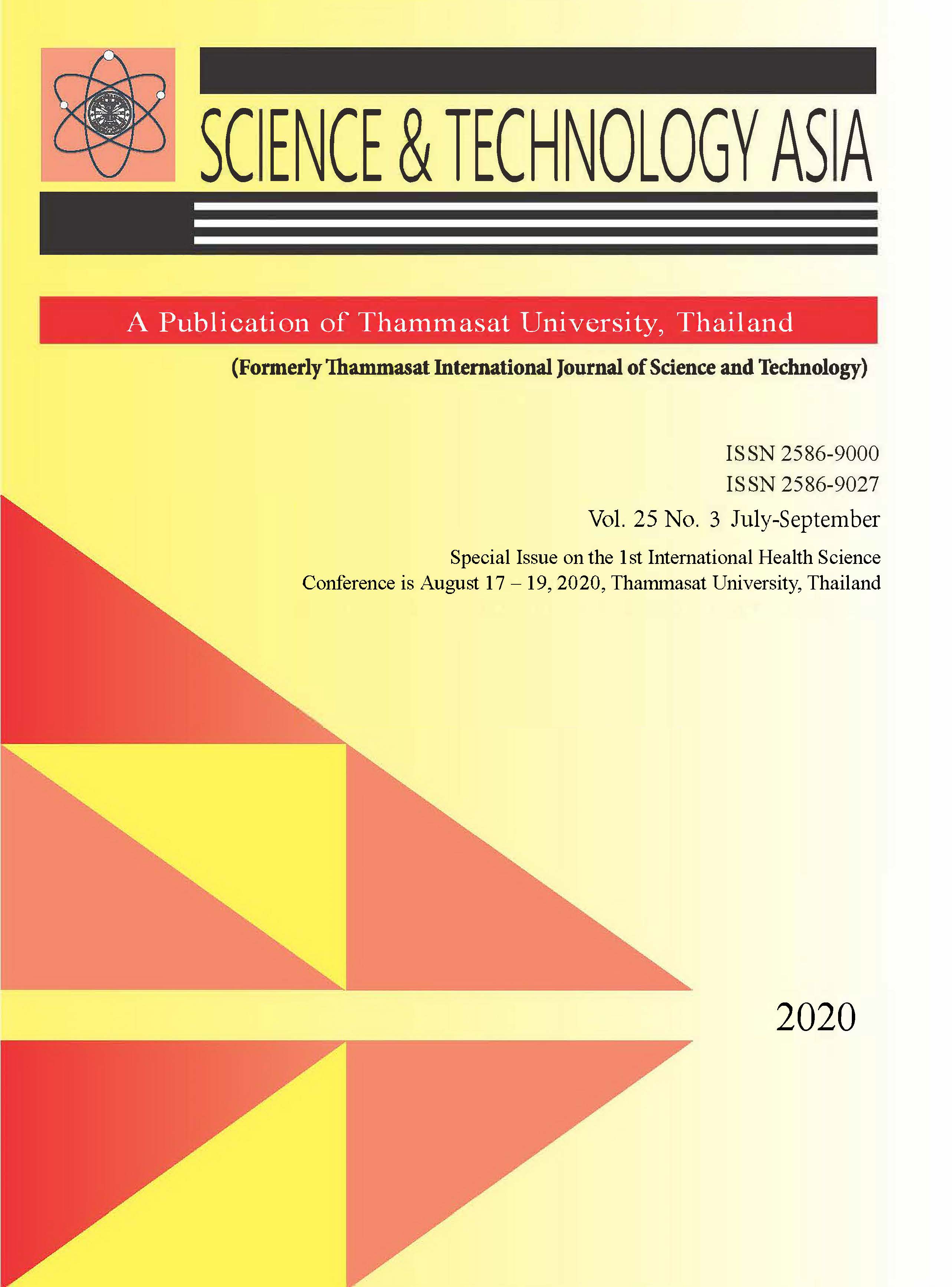Anti-inflammatory Activity of Extracts from Thai Herbal Compress Ball and Its Plant Ingredients
Main Article Content
Abstract
Look Phra Ang Kob ( LPAK) , one of Phra Osod Phra Narai remedies, is the Thai traditional herbal compress ball which has long been used to relieve local muscle pain such as office syndrome. This compress ball consists of six ingredients including Tamarindus indica L., Crinum asiaticum L., Zingiber cassumunar Roxb., Cinnamomum verum J. Presl.Z, Nigella sativa L. , and sodium chloride. The objective of this study was to investigate the antiinflammatory effects of the LPAK formula used in a hospital, for each ingredient and for the modified LPAK formulae. The ethanolic extract and decoction were prepared and tested for the inhibition of nitric oxide production by LPS activated RAW264. 7 cell line. The results shown that the best formula was the ethanolic extract of LPAK formula 3 (IC50 value 48.14). The water extract of Crinum asiaticum L. exhibited excellent inhibitory effect on NO production with IC50 value of 9. 45 ± 2. 17 μg/ mL and the ethanolic extracts of Crinum asiaticum L. and Zingiber cassumunar Roxb. also showed good inhibitory effect on NO production; IC50 value of 17.73±0.75 and 14.80±2.00 μg/mL, respectively. The results of this study supported the traditional use of LPAK and some plant ingredients.


